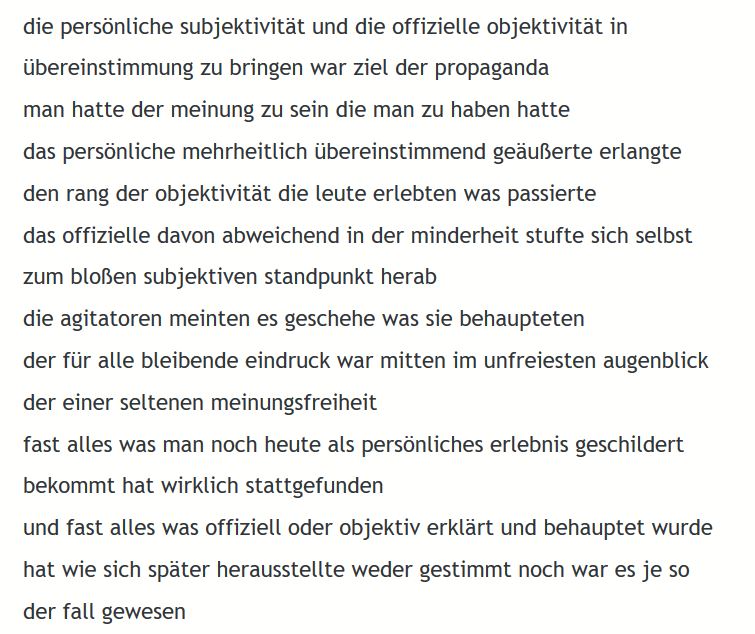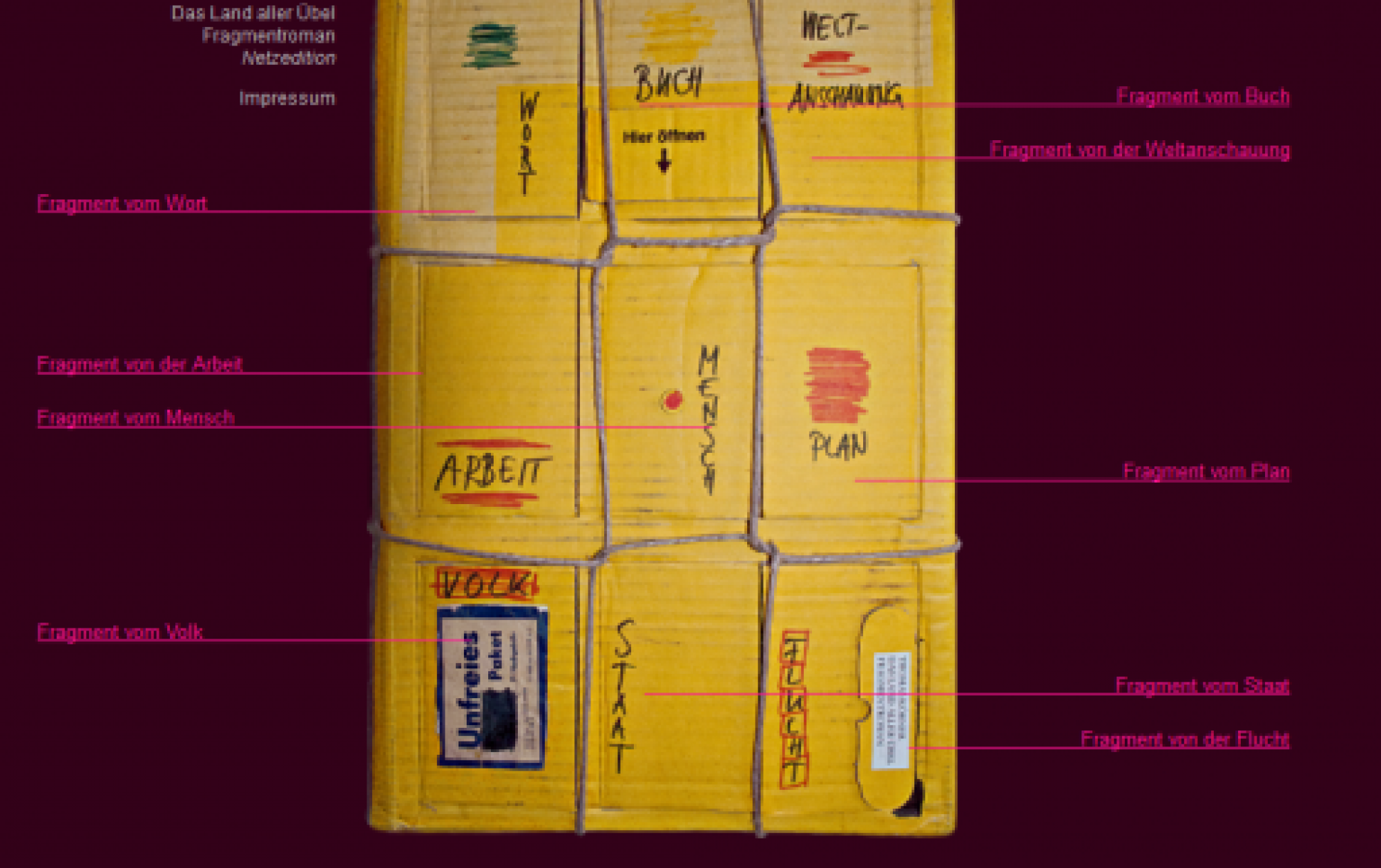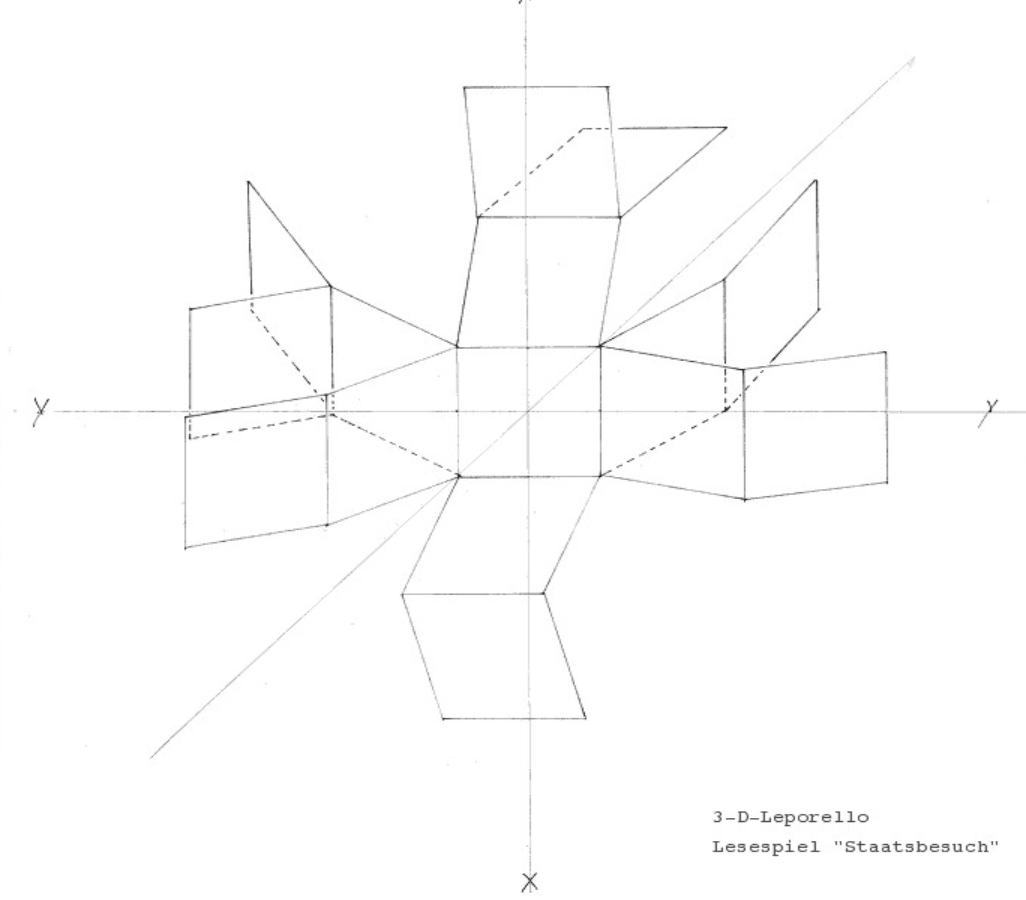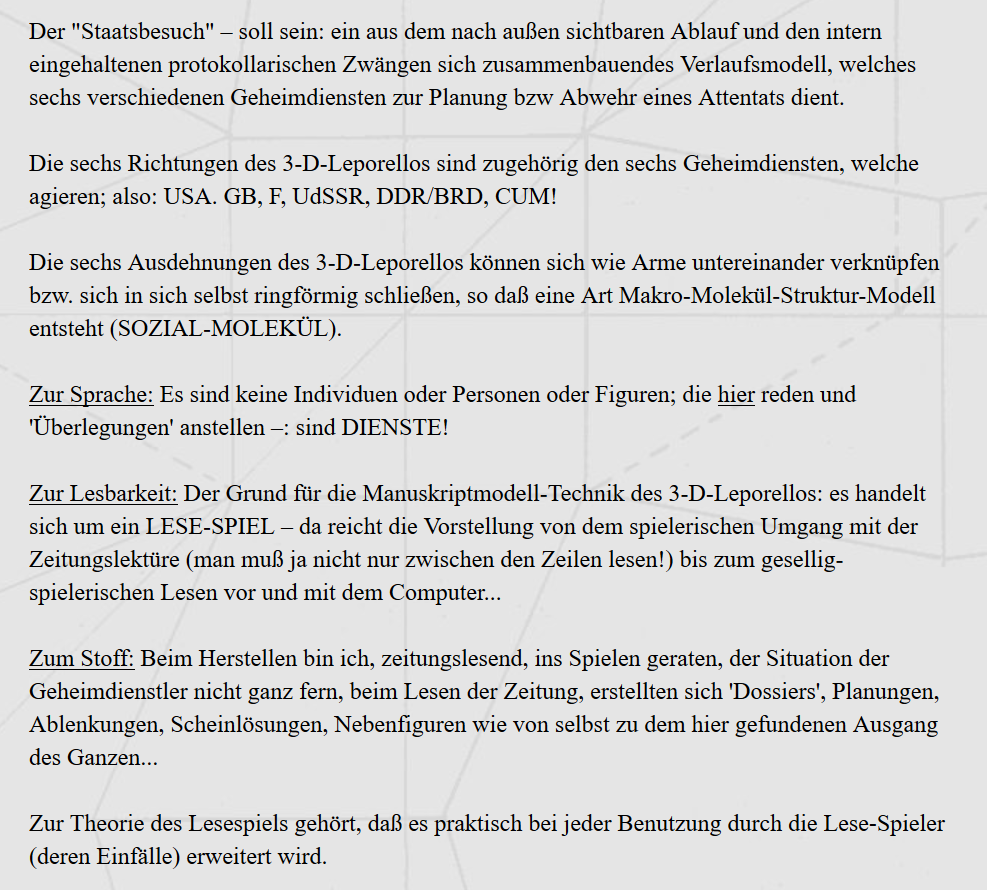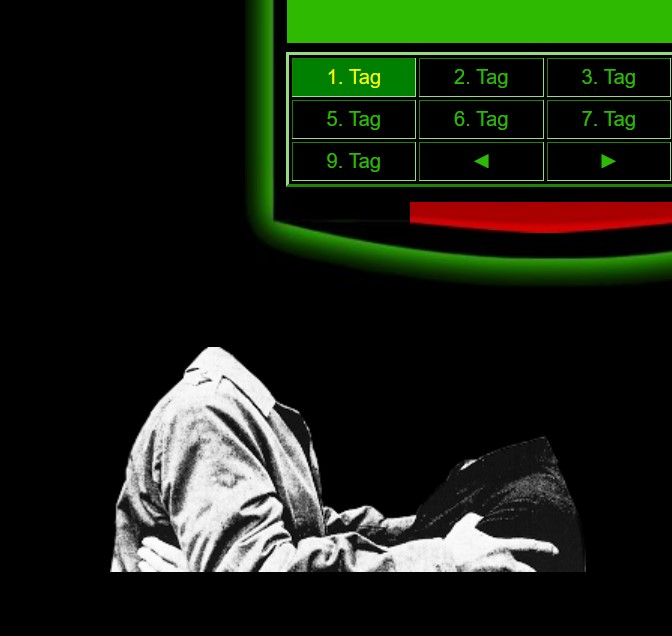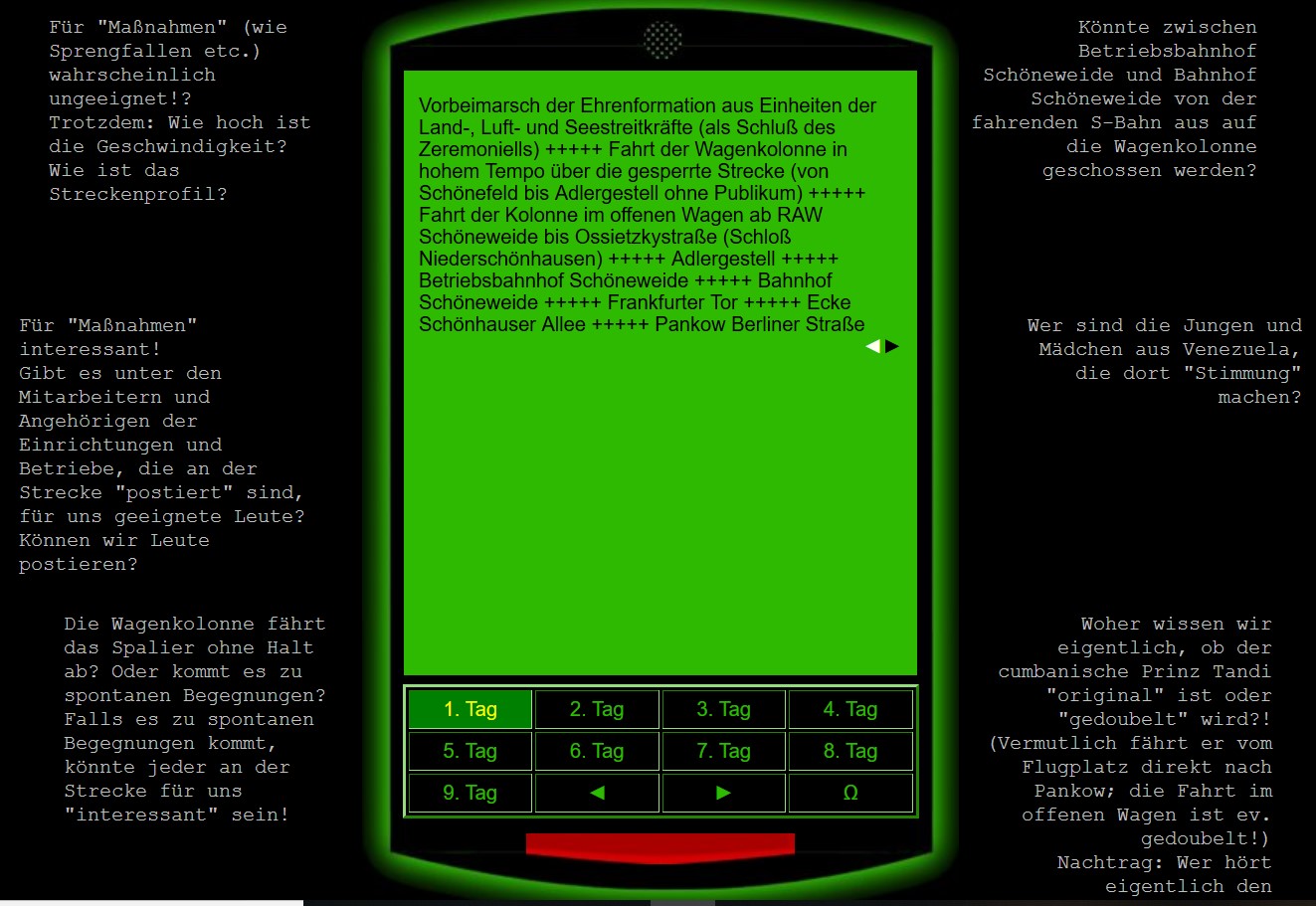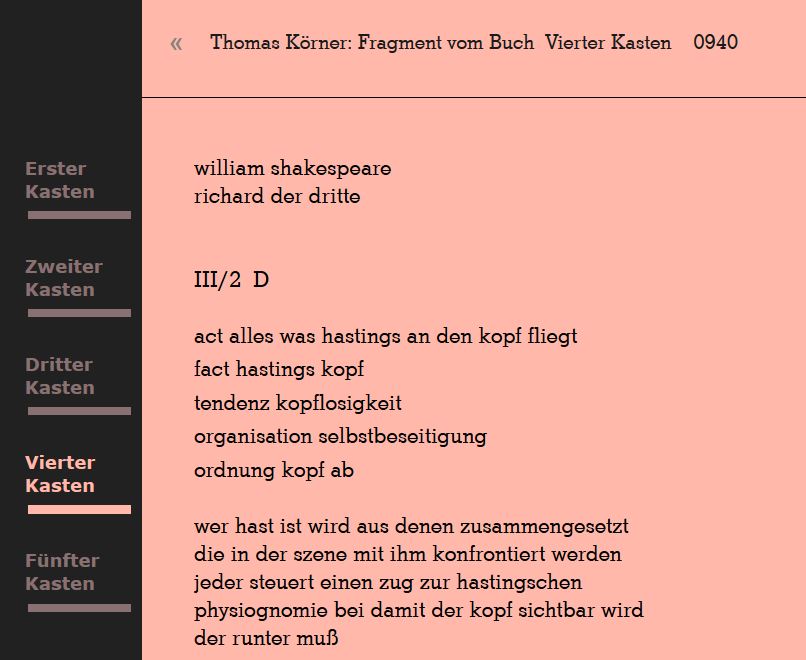The Fragment of the Book consists of 5 boxes and is part of the online novel by Thomas Körner, which he describes as a “system of a way of life in five index boxes”. This system should be looked at more closely by calling up these five index boxes in detail:
The First Box contains Das Karteiprogramm – the index program – and gives information about the writing worker. Körner describes it as his workbook in which he writes down the concept for the novel and loose notes, which are re-emerged and elaborated in the other fragments. The first box consists of 1,533 index cards or pages.
The Second Box is called Der Karteibeitrag – the index posts – and contains words from everyday life in the GDR, expressions by other writers that are ambivalent and ambiguous, but often they seem to have been invented by Thomas Körner himself. For example, do you know what an Ideenbordell – which means idea brothel in English – is? Look it up at Körner, under the letter i.
The Third Box is titled Das Karteimitglied – the index member – or The Ego as a subjective object. Or perhaps as an objective subject? What would be the difference? This you can only clarify by delving into the file box. (1488 index cards await you).
In the Fourth Box we read of Die Karteiführung – the card file management. On more than 1,400 pages, Körner has compiled his reading notes and quotes on other writers, in the form of a very systematically organized order. He has developed his own system of how the reading notes are arranged. Knowing this makes it easier for the reader of the online novel to retrieve quotes.
The last file box is called the Fifth Box Der Karteitag – The index day – In society of prevailing conditions. We read in a kind of diary of Thomas Körner’s everyday life or from his travels (after his escape from the GDR). These records go into the year 2005. (The box ends with the page number 1463!)
We can also try to replace the K in the titles (of each box) with a P from Kartei (index in english) to Partei (political party): party convention, party program, etc. Then new worlds open up. The five index boxes show us the “system of a way of life” as a whole. Is that the life of Thomas Körner, or of the commentless realist klr or the barbaric cabaret artist brk? Which immediately addresses the next topic – the two narrative voices brk and klr, whereby brk is the more ironic side of the system.

